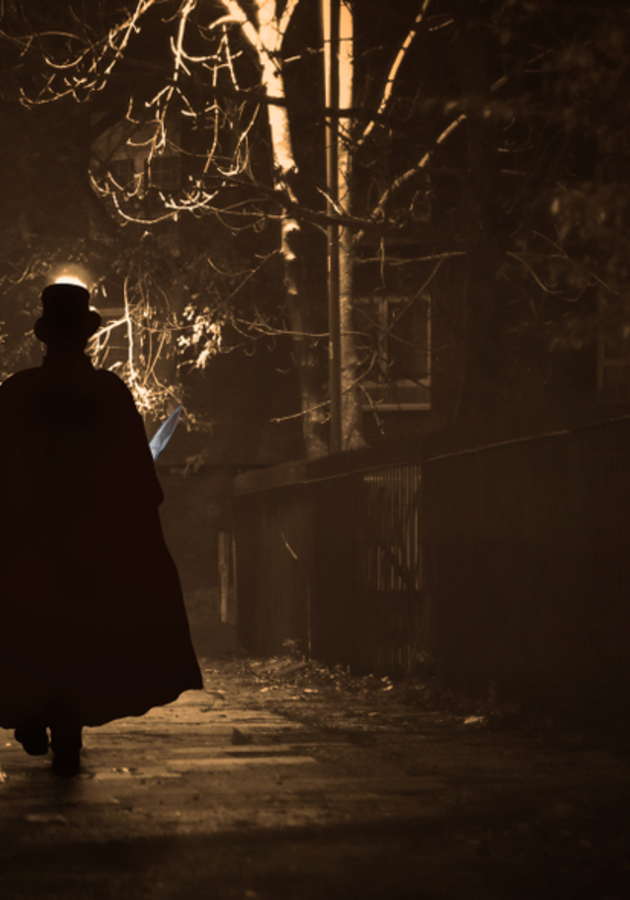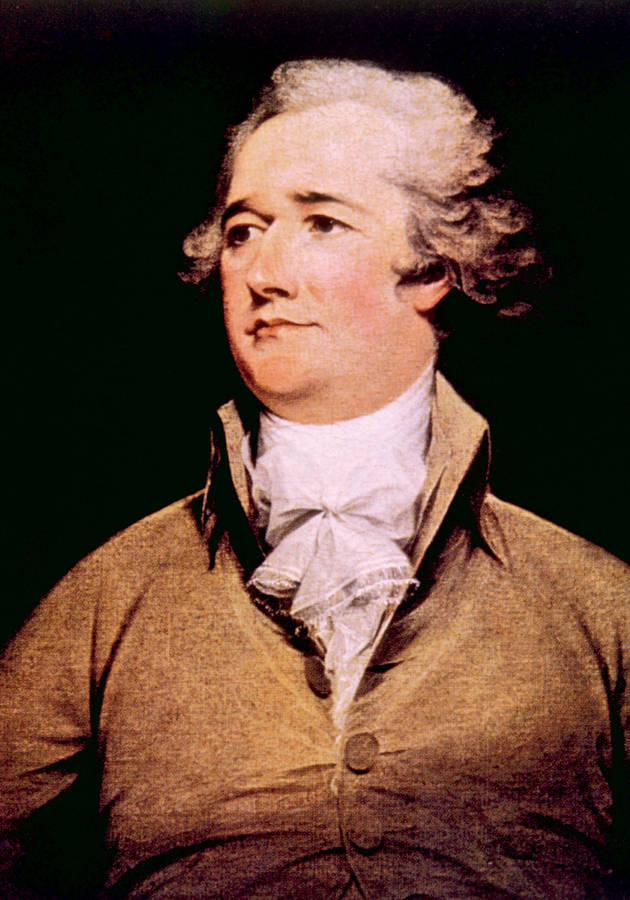World War I, also known as the Great War, lasted from 1914-1918. In “The Guns of August,” Barbara Tuchman focuses on the first month of the war, August 1914. To research for “The Guns of August,” Tuchman completely immersed herself in the topic. She read everything she could get her hands on concerning World War I, including letters, telegrams, memoirs, diaries, cabinet documents, secret codes, and battle orders. She even rented a car and drove around the battlefields of Belgium and France, to really get a first-hand feeling for what the war was like for people who lived through it. Get ready to immerse yourself in World War I!
A funeral
The funeral of the English King Edward VII in 1910 was significant, as it was the last event where the leaders of the Western world gathered in harmony. Tuchman writes, “The muffled tongue of Big Ben tolled nine by the clock as the cortege left the palace, but on history’s clock it was sunset, and the sun of the old world was setting in a dying blaze of splendor never to be seen again.”
In attendance were the new King George V, and riding right next to him was William II, the German Emperor. He was a proud member of the British royal family, but according to Tuchman, was equally aware of his own elevated status in European politics. William II was not unhappy about the death of his uncle Edward VII. He had always been suspicious of him, accusing him of slowly encircling Germany by ingratiating himself with Germany’s neighboring nations, but never bothering to visit Berlin.
The Kaiser’s unhappiness with the state of affairs reflected his nation, which, according to Tuchman, suffered “from a terrible need for recognition.” England and France had entered into an entente, much to William’s envy, and when, in 1907, a Russian-French collaboration was drawn up, the Kaiser did his best to get Czar Nicholas to come into a league of three nations of Russia, Austria, and Germany. Nicholas, who was primarily of German and Danish descent, enthusiastically signed the Treaty of Björkö, granting Germany the help of Russia in the event of an attack.
However, the Czar’s ministers quickly pointed out to him that this treaty was incompatible with his promises to France, so the treaty of Björkö lived less than a day.
Further attendants at Edward’s funeral were his two brothers-in-law by his wife Queen Alexandra, King Frederick of Denmark, and King George of the Hellenes, as well as her nephew King Haakon of Norway. King Alfonso of Spain, King Manuel of Portugal and King Ferdinand of Bulgaria were also present, as well as the King of the Belgians, Albert. Riding next to Albert was “the future source of tragedy,” as Tuchman calls him, Archduke Franz Ferdinand of Austria.
After all, Edward had been known as the “Uncle of Europe,” which caused this unprecedented meeting of nations. A contemporary, Lord Esher, wrote after the funeral: “There never was such a break-up. All the old buoys which have marked the channel of our lives seem to have been swept away.”
Outbreak
It would not be until four years later, in 1914, that World War I would eventually break out. The war was triggered by the assassination of the Archduke of Austria Franz Ferdinand on June 28, 1914. He was shot by Serbian nationalists on a state visit to Sarajevo. Following this, Germany assured Austria of its support, even if their reaction to Serbia would put Austria into conflict with Russia. There followed an outrush of events.
On July 23, an ultimatum was delivered to Serbia by Austria. The Serbian reply was rejected on July 26 and Austria then declared war on Serbia on July 28, 1914. The Austrians bombarded Belgrade on July 29 and Russia immediately mobilized along their Austrian frontier. General mobilization was ordered by Austria and Russia on July 30, and on July 31 an ultimatum was issued by Germany to Russia, giving Russia 24 hours to demobilize. War was on the horizon.
On August 1, in Berlin, Paris, and London, the Russian reply was awaited with bated breath. There was still a chance to avoid a full-blown war. When the ultimatum expired without a reply, the German ambassador in St. Petersburg was instructed to declare war by 5 p.m. Even though the Kaiser tried to stop the war at the last moment, at 5 p.m., he declared a general mobilization in Germany.
France was desperate to enter the war with England as an ally. In order to do so, they needed to convince England that Germany was the only aggressor in the situation. Hence, France ordered a 10-km (6.2 mile) withdrawal along its German frontier on July 30. General Joffre, the French Commander in Chief, was eager to start mobilization, but France held out in order to prove to England it was acting in self-defense. It eventually started mobilization at 3:30 p.m. on August 1.
Finally, England was reluctant to enter the war just yet. The cabinet and the parties were divided. On the one side reigned a deep suspicion of “foreign entanglements” deriving from the Boer War, and on the other side was the opinion that “Britain’s national interest was bound up with the preservation of France.” Britai n only entered the war four days later on August 4, when Germany had already started its invasion of neutral Belgium.
Naval battle
Even before the land battle began, the German commander of the naval fleet in the Mediterranean, Admiral Wilhelm Souchon, received a telegram on August 4 which read: “Alliance with Turkey concluded August 3. Proceed at once to Constantinople.” While this order was canceled almost immediately, Admiral Souchon still decided to obey. Germany at the time had one of the largest fleets in the world, second only to France. In the Mediterranean, only two German ships were stationed: the battle cruiser Goeben and the light cruiser Breslau.
When Souchon received his orders to proceed to Turkey, the Goeben was having troubles. It was faster than the French battleships, but some of its boilers had been leaking steam for a while. On the first two days of August, Souchon and the Goeben were rounding the heel of Italy in the hopes of finding a German merchant ship that would provide them with coal.
Finally, in Messina, a German merchant provided the Goeben with coal. Admiral Souchon then proceeded to the Algerian coast, where he planned on bombarding two French embarkation ports, Bone and Philippeville.
Just before he reached the Algerian coast, Souchon received his order to proceed to Constantinople. But he was burning for a fight, so the two German battleships ran up the Russian flag and attacked the French ports. Then, they turned around to load more coal in Messina before making the long journey to Constantinople.
The French, hearing of the shelling of their ports, feared that the two German ships were now headed westward to attack Algiers next. Meanwhile, two British battleships, the Indomitable and the Indefatigable, had been steaming west all night and then encountered the Goeben and Breslau just off Bone. War had not been declared yet between the two countries, so the battleships passed one another in silence within 8,000 yards.
It did not occur to either the French or the English that the German ships might perform a political mission and were not intent on further fighting. Nevertheless, the two British warships were ordered to shadow the Germans, until such a time as war was eventually declared. This was the start of a desperate chase across the Mediterranean, with Souchon driving his ship to the utmost.
Eventually, on August 10, both the Goeben and the Breslau entered the Dardanelles. This made evident to the Allied forces that Turkey was bent on entering the war on Germany’s side. They tried to pay off Turkey in order for it to remain neutral, but to no avail. The war then spread across another half of the world, including Bulgaria, Romania, Italy, and Greece.
Battle of Mons
The Battle of Mons has achieved mythical status in retellings of World War I. The battle saw the victory of the British army over a much larger German force. It also saw few casualties, which gave rise to the legend of the Angels of Mons who descended from heaven to help the British army. But what really happened on the battlefields of Mons?
The battle of Mons was part of the so-called “Battle of the Frontiers” which lasted from August 20 until August 24, and saw the whole Western front blazing with battle. The Battle of the Frontiers started in Lorraine but soon stretched over Ardennes and Charleroi (Shar-le-roy) to Mons. The Battle of Mons saw the first major action for the British Expeditionary Force (BEF) in World War I.
The BEF was made up of two corps and one cavalry division. I Corps was led by Sir Douglas Haig, later known as Earl Haig, or the Butcher of World War I, so-named for the casualties the British army suffered at the battle of the Somme in 1916. In this first battle though, Sir Haig’s corps was not even involved yet.
Mons was located near Waterloo and near the spot where Marlborough had defeated the armies of Louis XIV. Morale among the British soldiers was high, as the very ground they were now treading had already seen some of the greatest victories in British history.
The German first Army was led by General von Kluck, who was surprised by the British presence ahead of him. As far as he was aware, the British had only landed in Dunkirk a few days before. He was now worried about an attack from behind by the Belgians and a possible attack on his flank by the British.
Eventually, the British and German armies positioned themselves on either side of the 60-foot-wide Mons Canal. The British army formed a salient, with the French army led by Lanrezac to their right. Battle started at 9 a.m. on August 23. The British riflemen were so skilled and fast that the German soldiers were under the impression that they were being fired at with machine guns.
After having withstood shelling and gunfire for six straight hours, the salient’s powers slowly started to dwindle. If the salient yielded, the troops along the straight section of the canal would be in danger, so withdrawal was ordered toward 5 p.m.
During the night, without consulting the British, the French commander Lanrezac ordered the complete retreat of his troops. As a result, the British army was now without protection, so the British armies also ordered retreats. The Germans had renewed their attacks and in the ensuing chaos, one British battalion never received its orders to retreat. Of this battalion, only two officers and 200 men survived.
So, far from being the mythical victorious battle that history made of it, the Battle of Mons lasted nine hours, engaged two divisions and caused 1,600 British casualties. It held up the advance of the German first army by one day. At the same time, in the Battle of the Frontiers, the French had suffered 140,000 casualties in four days, which was twice the number of the entire BEF.
Final Notes
Barbara Tuchman’s “The Guns of August” is a detailed account of the first month of World War I. It is engagingly written, putting the reader into the position of soldiers, generals, and civilians at the time. Robert K. Massie writes in his foreword to the book: “And yet, so great is Mrs. Tuchman’s skill that the reader forgets what he knows. Surrounded by the thunder of guns, the thrust and parry of bayonet and sabre, he becomes almost a participant. Will the exhausted Germans keep coming? Can the desperate French and British hold? Will Paris fall?”
12min Tip
If you are interested in war history, why not also read “The Art of War” by Sun Tzu?





























